
A giant asteroid measuring 10km (6 miles) in diameter hitting Earth some 66 million years ago wasn't the main cause of death for the dinosaurs, according to a new study. The impact, which formed the Chicxulub crater in the Yucatán Peninsula, Mexico, released more energy than a billion nuclear bombs, but it was the dust it sent into the atmosphere that spelled the end for three quarters of life on Earth.
Published in the journal Nature, the study by a team of scientists from the Royal Observatory of Belgium suggests that clouds of fine silicate dust produced by pulverised rock sparked a dramatic period of global cooling.
This story is from the December 2023 edition of BBC Science Focus.
Start your 7-day Magzter GOLD free trial to access thousands of curated premium stories, and 9,000+ magazines and newspapers.
Already a subscriber ? Sign In
This story is from the December 2023 edition of BBC Science Focus.
Start your 7-day Magzter GOLD free trial to access thousands of curated premium stories, and 9,000+ magazines and newspapers.
Already a subscriber? Sign In
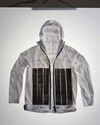
NOW YOU SEE ME, NOW YOU DON'T
Scientists around the world are working on ways to hide us from sight. But how close are we to developing tech that could make us invisible?

UNCORKED POTENTIAL
How much good can ditching drink for a month really do? Answer: a whole lot. In fact, science shows even short-term abstinence could unlock a cocktail of lasting benefits
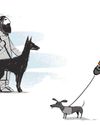
Scientists discover when humans and dogs became friends
The relationship spans thousands of years, but experts might have pinpointed the first connection
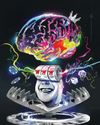
Why it's so hard to kick a gambling addiction
We now know that gambling can be as addictive as drugs, but there are factors that can make it even harder to quit

How much could Ozempic change our world?
The weight-loss drug has made headlines and broken sales records, but what does it mean for our future?
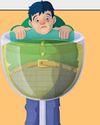
WHY DOES DRINKING ALCOHOL MAKE IT SO MUCH HARDER TO LOSE WEIGHT?
While enjoying the occasional glass of wine or pint of beer may seem harmless, regular or excessive alcohol consumption can significantly hinder your weight-loss journey for a few reasons:

Why do so many New Year's resolutions fail?
Establishing positive new habits is hard at any time of year. But there are ways to stop your attempts ending in failure
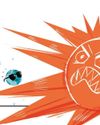
'Extreme' solar radiation storm could hit Earth
Sun-like stars may have tantrums far more frequently than we thought

HOW CAN I BANISH THE JANUARY BLUES?
Dark mornings, long chilly evenings and short days; many people find January tough.

Neutrinos are getting in the way of dark matter detection
These troublesome particles are difficult to detect, but they're starting to show up in places where they're not wanted